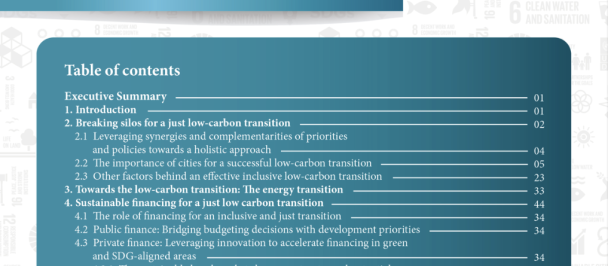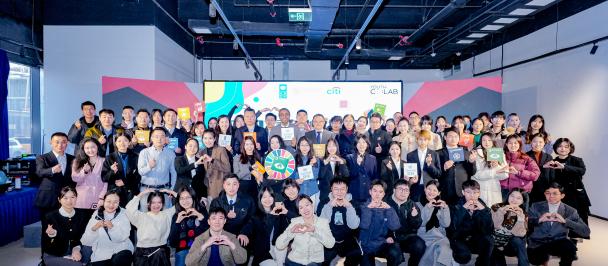UNDP Resident Representative in China Beate Trankmann speaking at the UNDP Hydrogen Industry Conference 2020 in Foshan, China
Excellencies, colleagues and friends,
On behalf of the United Nations Development Programme, I’m delighted to join you at our second Hydrogen Industry Conference here in Foshan. We’ve been working together on this exciting clean energy journey for so long, across the country – and as they say: “yǒu péng zì yuǎn fāng lái, bù yì lè hū” (有朋自远方来,不亦乐乎 / it’s always a pleasure to greet a friend from afar).
Foshan City and Guangdong Province have lead the way in developing fuel cell & hydrogen technology. These play an vital part in building a more sustainable, resilient future for us all.
This matters more than ever. COVID-19 has magnified the challenges facing all countries. As a result, we now face great uncertainty in achieving the Sustainable Development Goals – to end poverty and safeguard our environment. Yet this pandemic has also shown a greener path is possible – as we found working from home and travelling less. So this crisis is also an opportunity: to set a new normal for our planet and society, through a recovery driven by renewable energy.
Fuel cell vehicles and hydrogen technology play a growing role in that green path forward. By 2030, the Hydrogen Council projects the cost of hydrogen – including manufacturing Fuel Cell Vehicles and their supporting infrastructure – will drop by up to half, making it even more competitive.[1] &[2] And, that by 2050, clean hydrogen could meet 24% of global energy demand[3], with FCVs making up a quarter of all vehicles worldwide.[4] As a result, hydrogen energy is also set to create 30 million jobs around the world[5].
In recent months, great strides have been made to develop hydrogen globally, giving even more reason for optimism:
- The European Union just launched its new Hydrogen Strategy, with an estimated investment of up to $210 billion by 2050[6];
- While South Korea also announced it will invest about $96 billion in green projects – including electric and hydrogen vehicles.[7]
China has already manufactured more than 7,000 FCVs – over half the world’s total. As such, it plays a pioneering role in expanding hydrogen technology globally. By 2030, China plans to deploy a million fuel cell vehicles. By 2050, it’s forecast hydrogen will cover at least 10% of China’s energy needs. The Beijing-Tianjin-Hebei area, Greater Bay Area and Yangtze Delta are leading China’s hydrogen policy-making and development.[8] If such progress is sustained, it can contribute greatly de-carbonising cities, cleaning our air and slowing climate change. This includes President Xi Jinping’s recent pledge to peak CO2 emissions by 2030, and achieve carbon-neutrality by 2060.
We need even more incentives and policies to boost the green economy. While hydrogen is expected to be included in China’s energy statistics by the State Energy Administration, and new policies have been rolled out nationally and locally, more efforts are needed to achieve a scale that makes hydrogen commercially viable. This includes boosting coordination across ministries, to enable a national, hydrogen industry supply chain. In addition, more support is needed to ensure the energy to produce hydrogen is itself green. This is possible through a range of renewable sources – including solar, wind, hydro and biomass[9] – with applications beyond vehicles, such as heat and power facilities.
I’d like to thank our partners, who’ve been working with us to develop and commercialise hydrogen and FCVs since 2003. First: to the Global Environment Facility and its focal agency in China, the Ministry of Finance, for supporting UNDP’s hydrogen work since 2003. I also thank the Ministry of Science & Technology, which executed the GEF FCV Project, along with the China Automotive Research and Technology Centre – the Guiding Agency offering policy advice, technical assistance and training, which also co-organised this event.
Today’s forum gives me hope. It offers a chance to “build back better” from the pandemic: fighting climate change, while creating millions of jobs. With more investments like the ones made here, I believe we can still realise sustainable development in China, and around the world. I wish this conference every success, and all of us a swift, green recovery. Thank you!
[1] https://hydrogencouncil.com/en/path-to-hydrogen-competitiveness-a-cost-perspective/
[2] Deloitte - Ballard white Paper - Fueling the Future of Mobility Hydrogen and fuel cell solutions for transportation Volume, April 2020, https://www.sciencedirect.com/science/article/pii/S1464285920300766
[3] https://ec.europa.eu/commission/presscorner/detail/en/QANDA_20_1257
[4] According to the Hydrogen Council
[5] http://www.sohu.com/a/305595624_100104739
[6] https://www.weforum.org/agenda/2020/07/heres-how-hydrogen-can-help-fuel-a-clean-green-recovery/
[7] https://www.weforum.org/agenda/2020/07/heres-how-hydrogen-can-help-fuel-a-clean-green-recovery/
[8] https://energyiceberg.com/china-renewable-green-hydrogen/
[9] Ren X et al., Challenges towards hydrogen economy in China, International Journal of Hydrogen Energy, https://doi.org/10.1016/j.ijhydene.2020.01.163

 Locations
Locations



